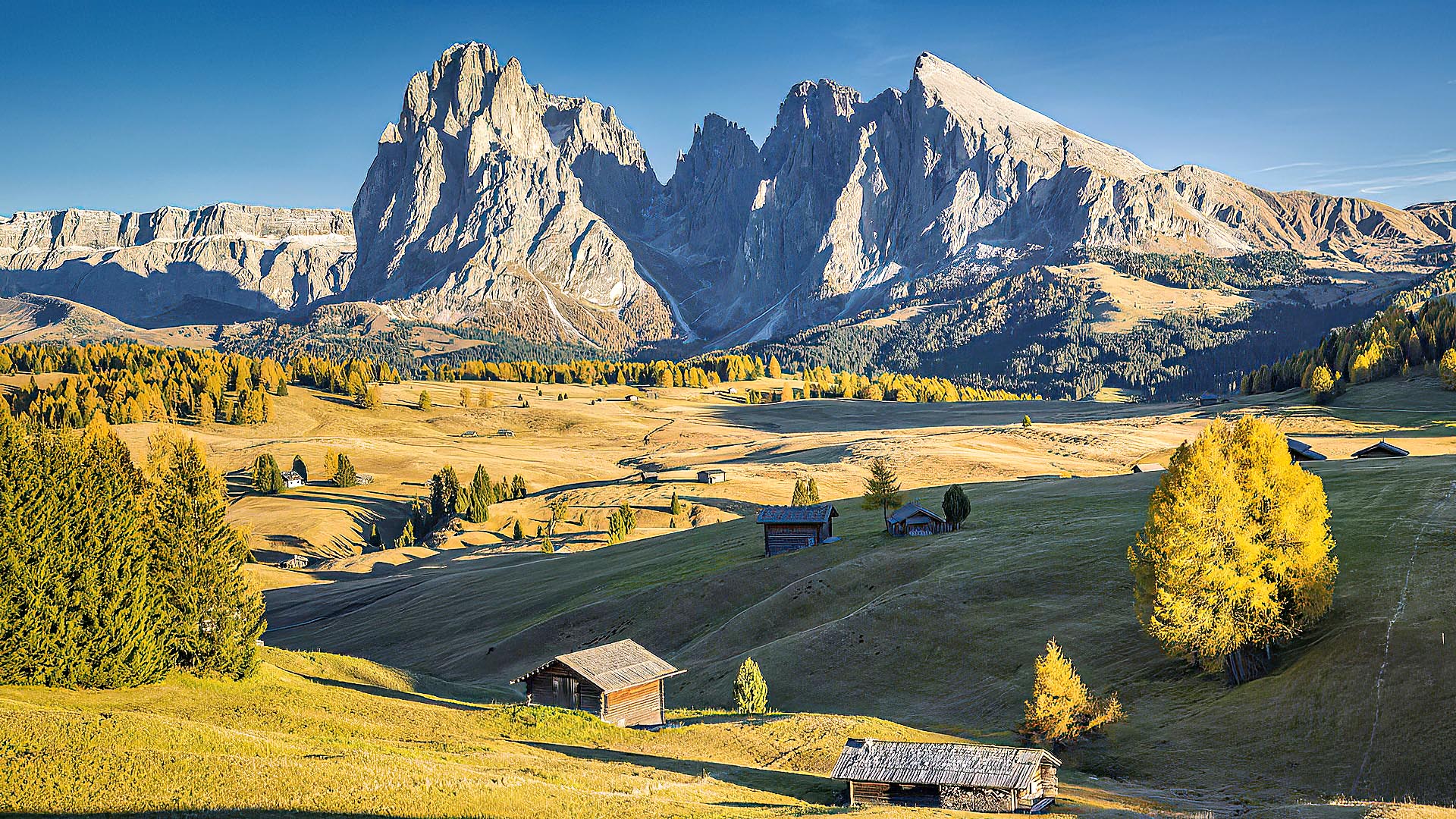Alpe di Siusi
And I will walk [q]at liberty, For I seek Your precepts. Psalm 119:45 NASB
At liberty – “The high plateau in the heart of the Dolomites is a natural paradise in summer and winter and a wonderful destination for versatile day trips.”[1] Click on the footnote below if you want to see this fabulous place. And now I’ll explain why you need to see this in order to appreciate the poet’s use of rāḥab. Oh, here’s a picture to encourage you:

Now let’s talk about rāḥab. Read Robert Altar’s translation of this verse: “And let me walk about in an open space, for Your decrees I have sought.” rāḥab is the Hebrew for “open space, expanse.” “The root is used in two completely different semantic extensions. The term is used to describe the breadth or expanse of land or the width of an object. The root often occurs in descriptions of the spaciousness. . . However, its most frequent occurrence is in psychologically revealing phrases involving parts of the body or bodily attributes. These phrases are completely colloquial and defy literal translation.”[1] Now you know why I wanted you to see Alpe di Siusi. Imagine walking over those fields with a clear view of the majestic Italian Alps. Imagine the cool breeze you feel coming down those peaks, the smell of the grass, the peaceful quiet and stillness. This is what the poet means by “at liberty.” He’s not cited Patrick Henry. He’s experiencing the wonder of God’s open creation. He doesn’t know the terrain of Alpe di Siusi, but he does know the awe of the heavens, the silence of the desert, the vastness of the Negev. And, of course, this is another vav-conversive verb. “I walked in the open because I sought Your precepts.” Notice that Alter correctly translates the second verb (dāraš) in the past tense, not the present found in the NASB. Here’s the Hebrew:
וְאֶתְהַלְּכָ֥ה בָֽרְחָבָ֑ה כִּ֖י פִקֻּדֶ֣יךָ דָרָֽשְׁתִּי
The present tense of dāraš would be דּוֹרֵשׁ “I seek.” But the text has the past tense (דָּרַשְׁתִּי) “I sought.” Therefore: “I walked in open spaces because Your precepts I sought.” Piqqûdîm—oversight. Because he allowed God’s oversight in his life, he was able to walk openly, without constrain or the need for psychological disguise. In other words, he lives with a clear conscience.
Wouldn’t that be nice? Alpe di Siusi.
Topical Index: piqqûdîm, oversight, dāraš, to seek, rāḥab, open space, conscience, Psalm 119:45
[1] White, W. (1999). 2143 רָחַב. In R. L. Harris, G. L. Archer Jr., & B. K. Waltke (Eds.), Theological Wordbook of the Old Testament (electronic ed., p. 840). Moody Press.




Yes! To experience such sense of liberty is to be freed from the shackles of all bondage. And imagine, too, each step as you walk… taking in the wonder of the fullness of this vast creative work… every sensation perceived as resonant with a resounding harmonic concord… wondrously, reflecting and suggesting the very nature of its grandeur… and something of the immutable glory of its source and host.
“Piqqûdîm—oversight. Because he allowed God’s oversight in his life, he was able to walk openly, without constrain or the need for psychological disguise. In other words, he lives with a clear conscience.” Emet! …amen.